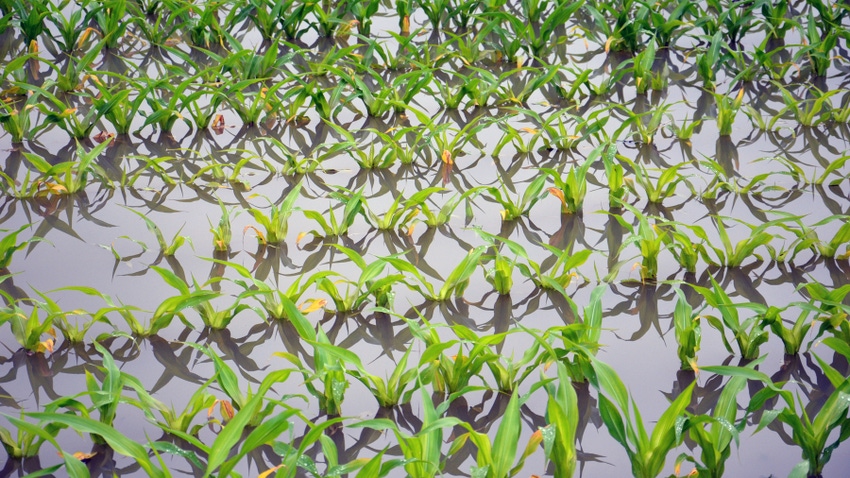
If you’re waiting for climate change to affect your farm before addressing it, Don Villwock believes the horse is already out of the barn. “We’ve already seen what big weather events can do,” says Villwock, Edwardsport, Ind., past president of Indiana Farm Bureau Inc. “The 2019 planting season was a good example.”
Extreme weather events didn’t stop with 2019. In 2022, most of Indiana experienced drought and excess heat. There were echoes of 2012, the worst drought and high-heat event in Indiana in 40 years. Indiana just experienced the sixth-warmest January since 1866. Wild swings keep coming.
“Changes in weather patterns are real, and we need to learn how to adapt to them,” Villwock says. “It’s bigger than one farmer can face alone.
“We need everyone, plus help from our partners in agriculture, including Purdue University Extension and agribusiness, the Indiana State Department of Agriculture, and our Indiana Association of Soil and Water Conservation Districts.”
Over one year ago, Villwock and Jason Henderson, director of Purdue Extension, partnered with nonprofit Solutions from the Land and Purdue to create the Indiana Smart Agriculture Working Group. About two dozen interested farmers and members of the ag community gathered to discuss the impact of changing climate and possible solutions. The working group has released its first report, Indiana Smart Agriculture Report: A Vision and Roadmap for Indiana Climate-Smart Agriculture.
Key findings
“Climate change is real and not going away,” Villwock says. Considerable evidence documents changes, especially more erratic weather cycles. If you skip discussion about possible causes and focus on whether the climate is changing, there is consensus, the group reports.
One mission of this first phase of discussions by the working group was to determine if there was enough need and interest to continue conversations, hopefully leading to recommendations for policy changes that could help Indiana farmers adapt. Ernie Shea, representing Solutions from the Land, reports that the group concluded these conversations should expand.
Having worked in other states to develop similar plans, Shea believes producers need to lead climate-smart agriculture conversations. They are the ones who could be most affected.
The consensus in the Indiana group is that Indiana and agriculture would benefit from development of a farmer-led adaptation and mitigation strategy for presentation to peers, policymakers, researchers and value-chain partners, Shea reports.
My take
I was invited to participate, and while conflicts kept me away from several meetings, I reached four conclusions. One, there is too much evidence not to acknowledge that what we know as climate is more erratic today than before, affecting farming decisions.
Two, there are plenty of good opinions among farmers and leaders indicating that we should act. The first step is recognizing the problem. The next step is figuring out what to do.
Three, the issue is so big and innocuous that figuring out what to do is hard to get your hands and head around. It’s even difficult to see a clear path for moving from discussion to print and ink strategies to combat climate change.
Lastly, we shouldn’t stop talking. Erratic weather events appear here to stay. It becomes important for everyone to realize this is an important topic to address. Make it a point to read the full report from the Indiana Smart Agriculture Working Group. You can email Shea at [email protected].
Read more about:
Climate ChangeAbout the Author(s)
You May Also Like




